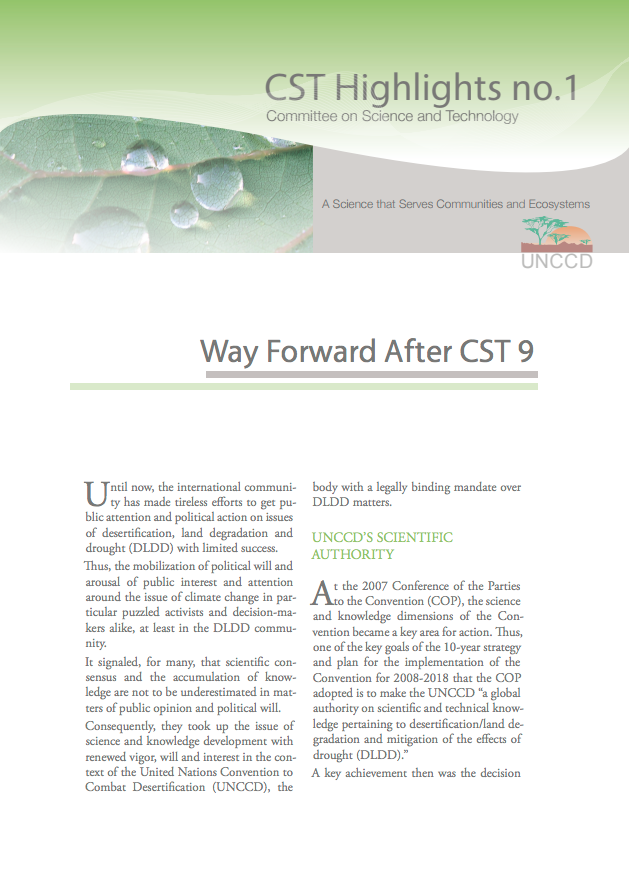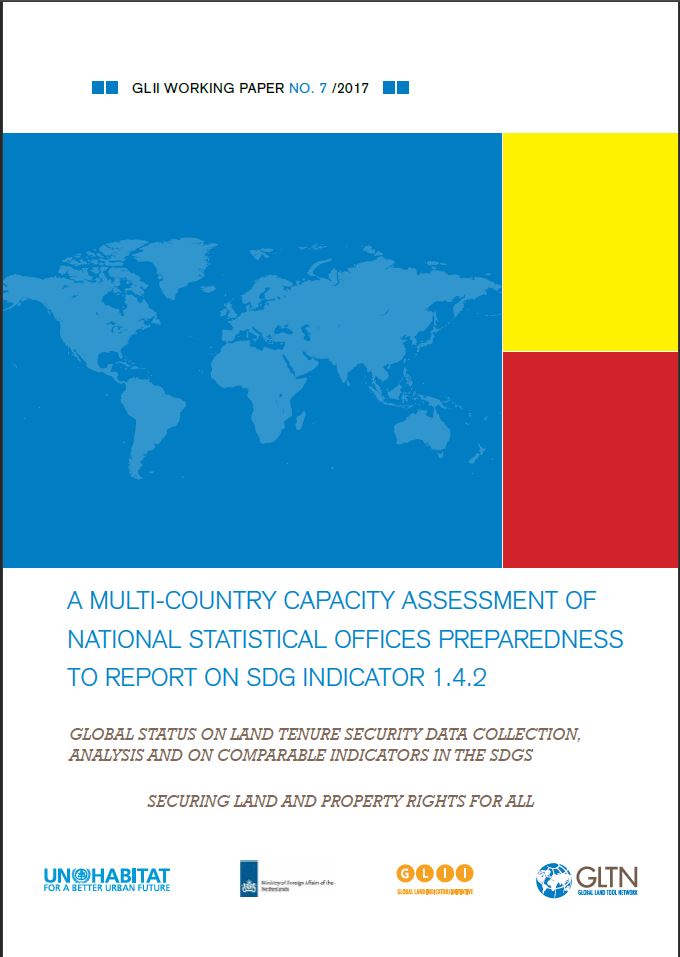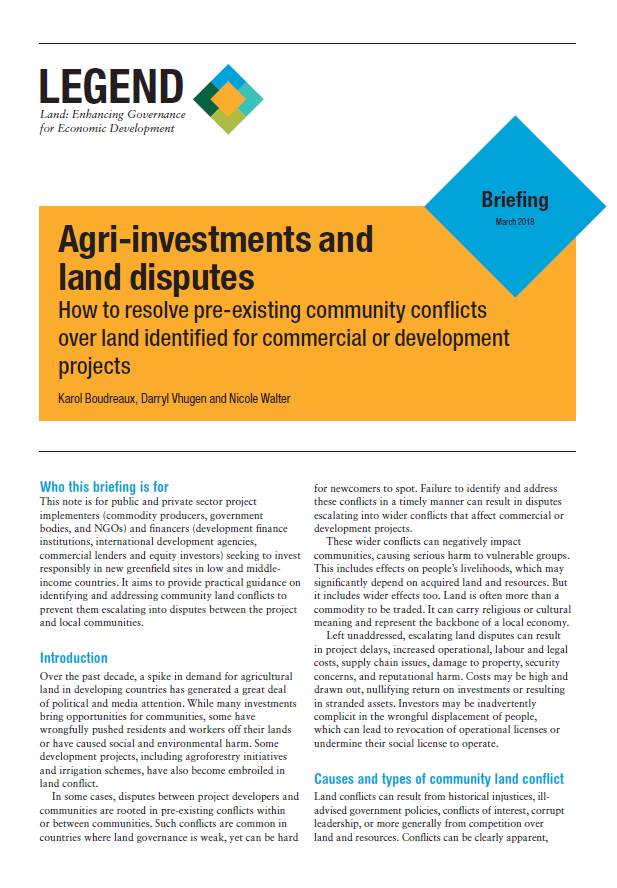Agencias de desarrollo
AGROVOC URI:
Forestry assistance and tropical deforestation: why the public doesn't get what it pays for
Popular concern about tropical deforestation largely drove the rapid growth in forestry assistance in recent years. Nevertheless, forestry assistance has had limited impact on forest clearing and much of it has gone to address other problems. To reduce inappropriate deforestation requires a combination of a multi-sectoral approach, greater regulation, and payment for environmental services. Aid officials have been partially unwilling and partially unable to adopt these approaches.
Rethinking development models and irrigation projects in Nepal
Way Forward After CST 9
Until now, the international community has made tireless efforts to get public attention and political action on issues of desertification, land degradation and drought (DLDD) with limited success.
Thus, the mobilization of political will and arousal of public interest and attention around the issue of climate change in particular puzzled activists and decision-makers alike, at least in the DLDD community.
Struggling against excuses: winning back land in Cambodia
This paper focuses on one community in Cambodia that won back land from a large land deal by grabbing onto the rupture in property relations initiated by a one-year land titling campaign. I document the struggle between competing legibility and illegibility projects which I examine through two moments, one of the state choosing to see its population and their relations to territory, and another in which the state’s excuses for not recognizing smallholders’ claims began to falter.
Documenting Customary Tenure in Myanmar: A guidebook
ABSTRACTED FROM EXECUTIVE SUMMARY: This guidebook provides conceptual, legal and practical tools and resources to help civil society organizations guide communities through the process of documenting customary tenure at the local level. It also provides suggestions for how to build on the momentum generated by the documentation process to develop strategies and actions to defend, strengthen and promote customary rights at community, regional and national level.
Conversion of Land Use in Vietnam through a Political Economy Lens
Land tenure in Vietnam is becoming increasingly contested in the context of rapid economic development and growing inequality. Agricultural land in and around cities is targeted by developers for conversion to commercial uses. In rural areas, farmers' access to productive land is restricted by the prevalence of state-owned farms and forest enterprises. As a result, the number of complaints filed over land issues has increased dramatically in the last decade, and the revision of the Land Law in 2013 led to an unprecedented level of public participation in land policy formation.
A Multi-Country Capacity Assessment of National Statistical Offices Preparedness to Report on SDG Indicator 1.4.2
This report presents the results of the multi-country assessment carried out in 17 countries across the world. The findings of this assessment is expected to directly inform the work of the co-custodian agencies for land Indicator 1.4.2 (UN-Habitat and World Bank) in formulating a coherent capacity development strategy for NSOs at country level, and strengthen their collaboration with land agencies for enhanced data infrastructure needed to regularly report on this indicator.
Agri-investments and land disputes - How to resolve pre-existing community conflicts over land identified for commercial or development projects (Briefing note)
This note is for private sector project implementers and financers (development finance institutions, international development agencies, commercial lenders and equity investors) seeking to invest responsibly in new greenfield sites in low and middle- income countries. It aims to provide practical guidance on identifying and addressing community land conflicts to prevent them escalating into disputes between the project and local communities.
The Recognition of Customary Tenure in Vietnam
WEBSITE ABSTRACT: This thematic study explores the possibilities for strengthening the recognition of customary tenure in Vietnam. It begins with an overview of customary tenure in Vietnam, particularly in upland forest areas where customary systems still prevail. In upland areas, forest land allocation policies have been underway since the 1990s to claim back forest land from unproductive state-owned forest enterprises (SFEs) for redistribution to local forest users.
Linking Women and Land in Myanmar - Recognising Gender in the National Land Use Policy
The draft National Land Use Policy (NLUP) that was unveiled for public comment in October 2014 intends to create a clear national framework for managing land in Myanmar. This is a very important step for Myanmar, given the fundamental importance of land policy for any society – particularly those with recent and complex histories of political and armed conflict and protracted displaced populations. With 70% of Myanmar’s population living and working in rural areas, agriculture is a fundamental part of the country’s social and economic fabric.
Land Matters: Programme Toolkit
The purpose of the toolkit is to help Christian Aid programmes develop and deepen strategies for working on land. It gives an overview of land issues in the global context and offers tips for conducting a power analysis. Strategies from country case studies are grouped into community, national and international responses, and some key lessons and findings are outlined to enable programme staff to identify effective strategies. Risk and conflict are considered with a view to measuring risk and ensuring appropriate protection strategies are put in place.






